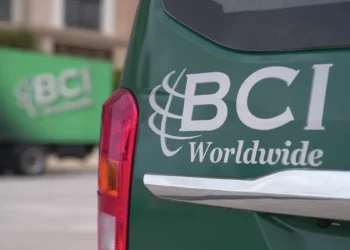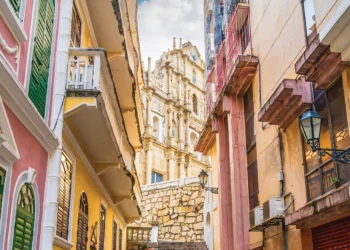Macau has emerged from the COVID-19 pandemic in surprisingly good shape, with the unexpected pace of recovery complemented by a positive shift in market dynamics and improving China sentiment. IAG takes a closer look.
With 18 months now passed since Macau’s borders reopened, the recovery story is well on its way to completion. Having recorded gross gaming revenue of MOP$183.1 billion (US$22.7 billion) in 2023 – equivalent to 62.6% of pre-COVID levels – the current year is tracking above 76% of the 2019 highwater mark as of the end of April, with March having recorded the highest monthly GGR since the pandemic at MOP$19.5 billion (US$2.42 billion). Most analysts had May pegged to exceed March numbers, but DICJ figures were still yet to be released at time of publication. [Ed: May ultimately came in at MOP$20.2 billion (US$2.52 billion).]
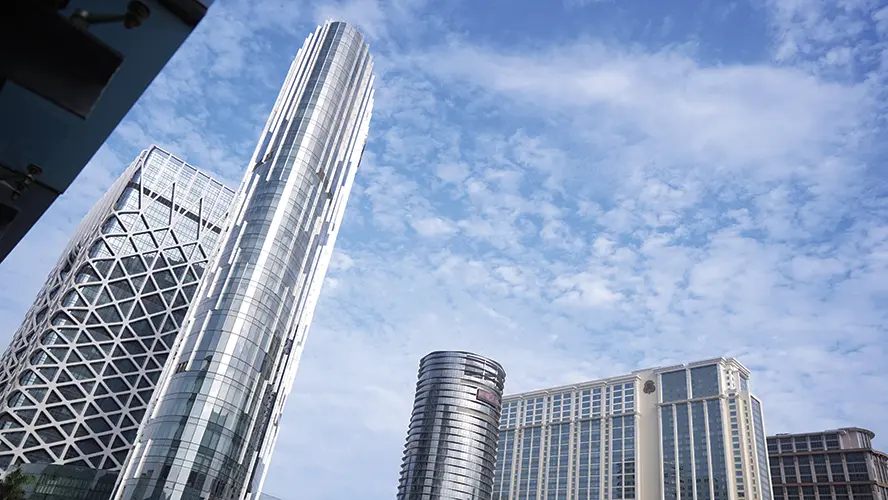 The Macau SAR Government has remained typically conservative in its 2024 GGR forecasts, stating last November its belief that gaming revenues would climb to around MOP$216 billion (US$26.8 billion), however the city’s strong start to the year has given industry analysts reason for optimism.
The Macau SAR Government has remained typically conservative in its 2024 GGR forecasts, stating last November its belief that gaming revenues would climb to around MOP$216 billion (US$26.8 billion), however the city’s strong start to the year has given industry analysts reason for optimism.
In April, global brokerage CLSA said it was raising its 2024 GGR forecast by 3.5% to US$30.3 billion – a figure that would represent 34% year-on-year growth and 83.5% of the 2019 GGR.
CLSA analysts referred at the time to Macau’s “resilience” and “nice positioning” which has seen it typically targeting just 2% of mainland China’s population, giving the SAR plenty of leeway to increase exposure.
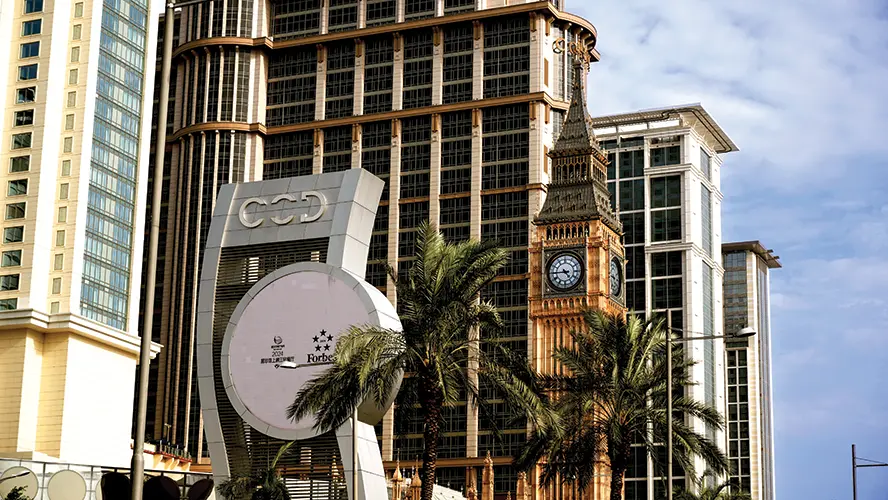 But GGR is only half the story. Thanks to Macau’s shifting market dynamics – a consequence of mainland China’s crackdown on junkets and a resulting focus by operators on the more lucrative mass and premium mass segments – Macau-wide Property EBITDA climbed back to 83% of pre-COVID levels in 1Q24 at around US$2.03 billion.
But GGR is only half the story. Thanks to Macau’s shifting market dynamics – a consequence of mainland China’s crackdown on junkets and a resulting focus by operators on the more lucrative mass and premium mass segments – Macau-wide Property EBITDA climbed back to 83% of pre-COVID levels in 1Q24 at around US$2.03 billion.
This strong show of profitability has already led two concessionaires – MGM China and Wynn Macau – to resume payment of dividends a full year earlier than expected, joining Galaxy Entertainment Group who resumed dividends in 2023 on the back of its strong cash reserves.
In a note, Morgan Stanley said it was expecting companies to focus on deleveraging first and to pay dividends only in late 2024 or 2025, and that the surprise move made by both MGM and Wynn “suggests management confidence of managing three uses of cash simultaneously,” namely deleveraging, concession-related opex and capex commitments and dividends.
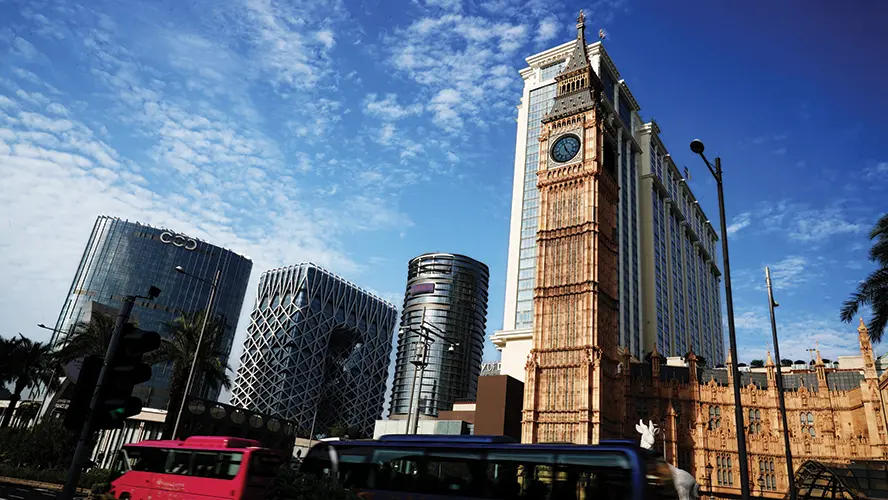 The investment bank also estimated FY24 industry EBITDA at more than US$8 billion.
The investment bank also estimated FY24 industry EBITDA at more than US$8 billion.
While Macau gaming stocks have been stubbornly slow to match recovery rates as seen through the lens of revenue or EBITDA, sentiment is undoubtedly improving.
One of the major concerns of the pre-reopening years was what China’s crackdowns on junkets and cross-border gambling would mean more broadly for the Macau gaming industry. Certainly, it could be said Beijing was making a statement with the arrest of then-Suncity boss Alvin Chau in November 2021 – subsequently imprisoned for 18 years in Macau for organized crime and illegal gambling – and Tak Chun CEO Levo Chan in January 2022, who was jailed for 14 years, also in Macau. China’s Ministry of Culture and Tourism also famously announced in August 2020 the establishment of a “blacklist” of overseas tourist destinations it said were disrupting the nation’s outbound tourism market by opening casinos targeting mainland Chinese customers.
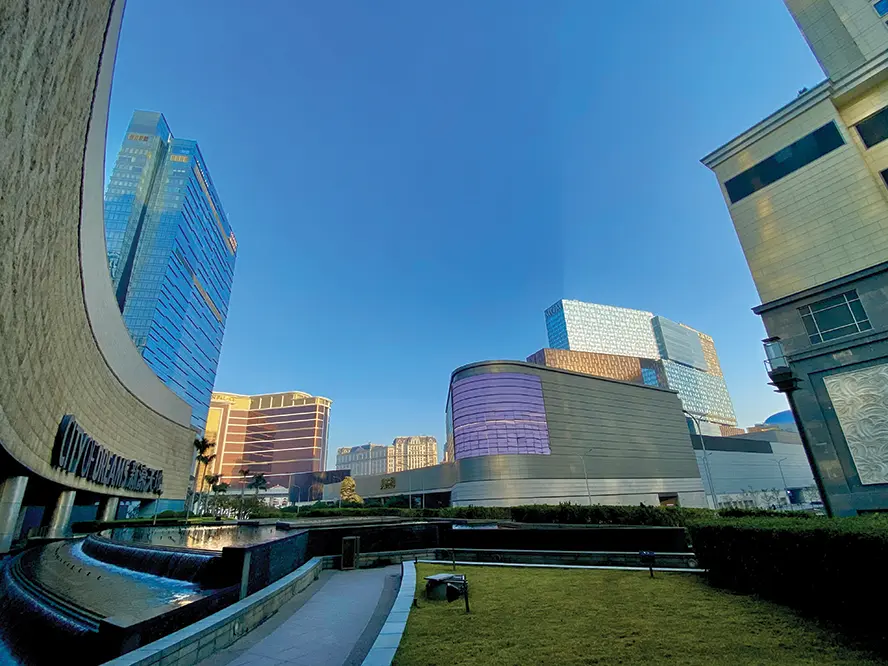 The Ministry did not specifically name any of the jurisdictions on this blacklist, sparking debate over whether it may include the Macau SAR.
The Ministry did not specifically name any of the jurisdictions on this blacklist, sparking debate over whether it may include the Macau SAR.
Yet the mainland’s actions since 8 January 2023, when border restrictions were dropped with almost no prior notice, have been overwhelmingly positive towards Macau.
In February, the State Council of the People’s Republic of China announced it was adding two new cities – Xi’an and Qingdao – to the list of those whose citizens are eligible to travel to Macau and Hong Kong under the Individual Visit Scheme (IVS). Devised in 2003 in a bid to boost tourism to the two SARs in the wake of the SARS outbreak, the IVS allows mainland residents to travel on an individual basis rather than only on business visas or in tour groups as was previously stipulated. The IVS has been a major driver of visitation to Macau since liberalization of the casino industry, accounting for 56% of mainland visitors to Macau in 2023 and 70% of those from neighboring Guangdong Province.
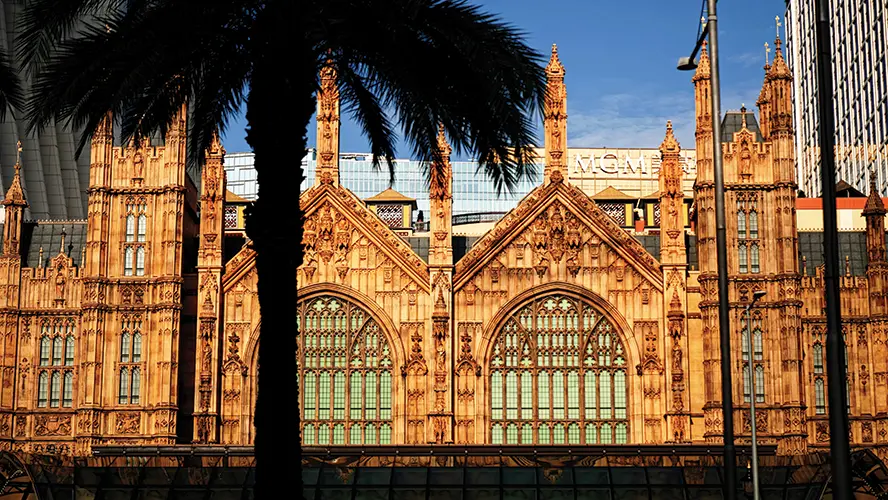 In May, the State Council added eight more cities to the IVS: Taiyuan in Shanxi Province, Hohhot in Inner Mongolia Autonomous Region, Harbin in Heilongjiang Province, Lhasa in Tibet Autonomous Region, Lanzhou in Gansu Province, Xining in Qinghai Province, Yinchuan in Ningxia Hui Autonomous Region and Urumqi in Xinjiang Uygur Autonomous Region, bringing the number of IVS-eligible mainland cities to 59.
In May, the State Council added eight more cities to the IVS: Taiyuan in Shanxi Province, Hohhot in Inner Mongolia Autonomous Region, Harbin in Heilongjiang Province, Lhasa in Tibet Autonomous Region, Lanzhou in Gansu Province, Xining in Qinghai Province, Yinchuan in Ningxia Hui Autonomous Region and Urumqi in Xinjiang Uygur Autonomous Region, bringing the number of IVS-eligible mainland cities to 59.
This follows an announcement by the Macau government that tour groups would, as of 6 May, be permitted to make multiple trips between Hengqin Island and Macau, allowing for better use of Hengqin’s hotel room supply.
In a note, Seaport Research analyst Vitaly Umansky said these policy measures will likely have “more marginal impact on visitation and GGR in the near term, but longer term are positive drivers for continuing to boost visitation.”
 Umansky also pointed out that such pronouncements by mainland authorities “should be a boost to sentiment, as the policy measures are a clear indication from the Chinese government about its continued support for Macau (and no negative association with the gaming industry).
Umansky also pointed out that such pronouncements by mainland authorities “should be a boost to sentiment, as the policy measures are a clear indication from the Chinese government about its continued support for Macau (and no negative association with the gaming industry).
“We expect continued positive economic policies to be implemented in the region, which should continue to ease and improve transport, movement of people, investment and cross border financial flows. In the long run, we would not be surprised by continued loosening of visa policies and potentially capital controls as well within the Greater Bay Area.”
It now feels an eternity ago since the Macau government confirmed in December 2022 that the city’s six concessionaires would all be issued new 10-year gaming concessions – a recipe that brought much-welcome relief but more than a sprinkle of trepidation to match.
Among a raft of new laws and requirements implemented as part of the concession re-tendering process were moves to shut down Macau’s satellite casino model, to significantly reduce the influence of junkets and to demand at least MOP$108.7 billion (US$13.5 billion) in combined non-gaming commitments by concessionaires over the duration of the concessions.
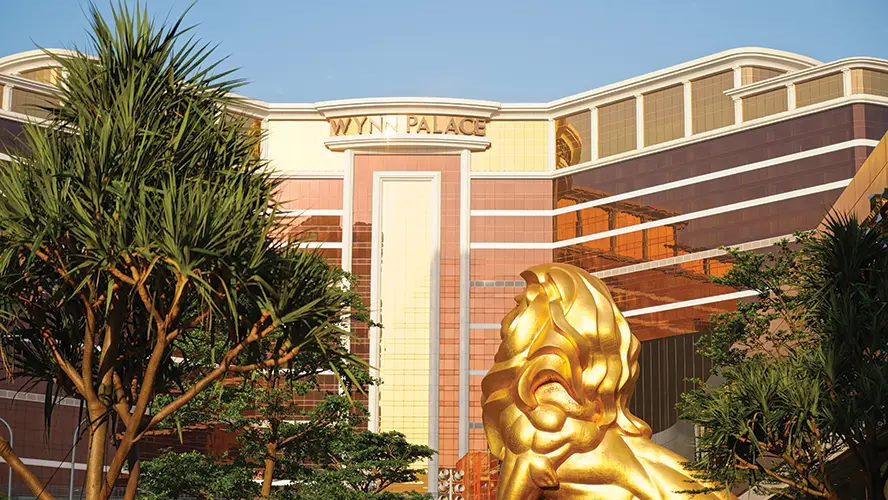 There was also a stipulation that this non-gaming commitment would rise by 20% should Macau’s industry-wide GGR surpass MOP$180 billion in any of the first five years of the concession. That barrier didn’t take long to break, with GGR surging to MOP$183.1 billion (US$22.7 billion) last year, the very first year of the decade-long concession period.
There was also a stipulation that this non-gaming commitment would rise by 20% should Macau’s industry-wide GGR surpass MOP$180 billion in any of the first five years of the concession. That barrier didn’t take long to break, with GGR surging to MOP$183.1 billion (US$22.7 billion) last year, the very first year of the decade-long concession period.
Concessionaires have embraced the opportunity to expand their non-gaming offerings, and with some early success, too. Of particular interest has been what some have dubbed Macau’s new “concert economy”, with a renewed focus on high-end performances over the past year having driven measurable increases in visitation and, according to some analysts, gaming revenues too.
Discussing the impact of Hong Kong singer Jacky Cheung’s 12-show stint at The Venetian Macao in mid-2023 alongside concerts by K-pop group BLACKPINK at Galaxy Arena and Hong Kong performer Leon Lai at Studio City, JP Morgan analysts DS Kim and Mufan Dhi suggested the shows “attract the right type of (high-value) players, including those from the database of Sands’ sister property Marina Bay Sands [in Singapore], which in turn helps to lift overall industry GGR.
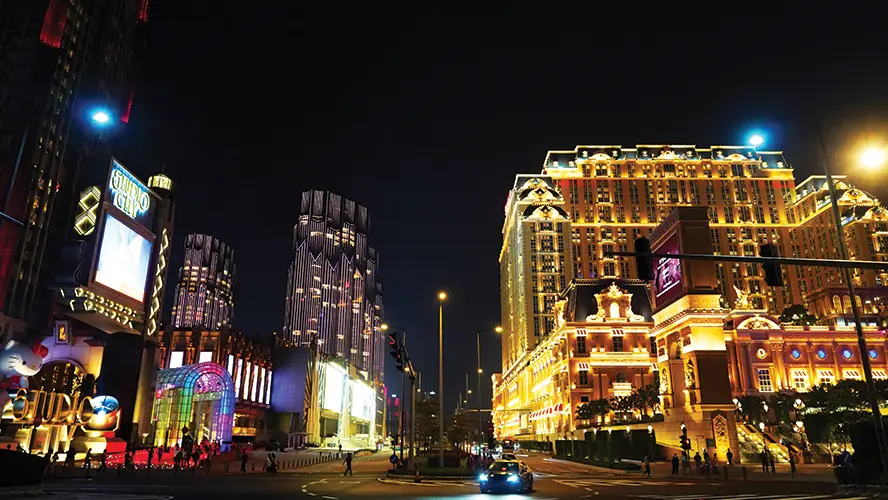 “These entertainment events do seem to move the needle for gaming business in Macau – at least thus far – which bodes well for Macau’s mass business to recover (well) beyond pre-COVID levels, in our view.”
“These entertainment events do seem to move the needle for gaming business in Macau – at least thus far – which bodes well for Macau’s mass business to recover (well) beyond pre-COVID levels, in our view.”
Buddy Lam, Executive Vice President, Public Relations of Corporate Office for Galaxy Entertainment Group, mentioned during last year’s MGS show that “returns from non-gaming investment projects may not be exceptionally high, but they drive foot traffic, consumption and even gaming revenue.”
Little wonder then that most concessionaires have targeted their early non-gaming spend towards entertainment, with Melco Resorts preparing to bring back its popular residency show The House of Dancing Water after more than four years, Wynn and MGM announcing plans for residency shows of their own and Sands China currently in the midst of a comprehensive renovation of Cotai Arena.
“We made a decision that if we take the arena offline and do it and make it one of the highest quality arenas in Asia, in the long run we will benefit from the entertainment,” said Patrick Dumont, President and COO of Sands China parent Las Vegas Sands, during the company’s 1Q24 earnings call.
“Once we do that, we’re going to have an incredibly high-quality arena with amenities that we never had before.
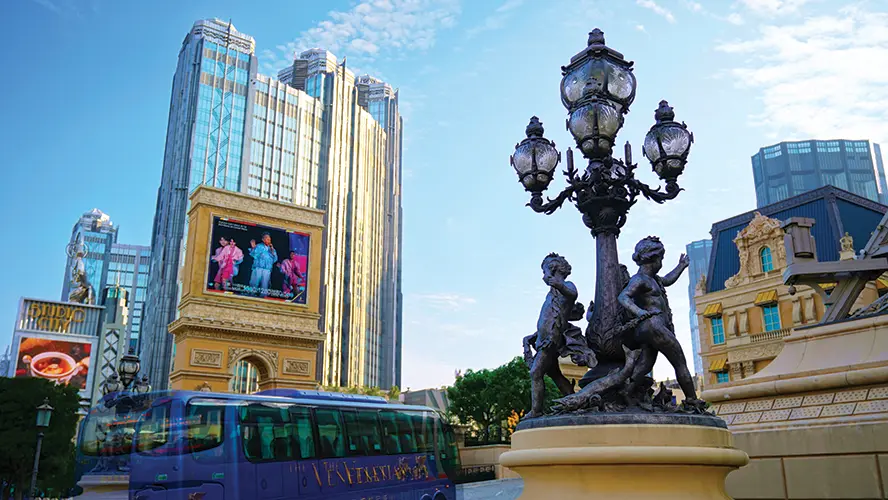 “It will make us more competitive in the market and actually drive additional high-quality tourism from both traditional markets and other markets. It will also help provide high-quality tourism from our core customer base and allow for more repeat visits from our high value customers.”
“It will make us more competitive in the market and actually drive additional high-quality tourism from both traditional markets and other markets. It will also help provide high-quality tourism from our core customer base and allow for more repeat visits from our high value customers.”
The decline in junkets is also proving to be of some benefit to the concessionaires, who have brought a considerable proportion of former-VIP play in-house or shifted players to the highly lucrative premium mass segment. Both options have had a positive effect on margins when compared to the junket days and are a key reason why EBITDA recovery is tracking comfortably ahead of the recovery in GGR.
The satellite issue has been more problematic. Last year the government backflipped on its plan to eradicate satellites completely over the course of the next three years, instead opting for a model by which they may continue to operate but without partaking in traditional revenue share agreements. Time will tell how that plays out, however the number of satellites has already shrunk from 18 to 11 since Macau’s new gaming law came into effect on 1 January 2023.
SJM Resorts, under whose license most of those shuttered satellite casinos had operated and which is still responsible for nine of the surviving 11, has borne the brunt of the closures given the government’s stipulation that displaced casino workers cannot simply be discarded. As a result, the company revealed during an earnings call last August that it was at that time carrying 2,150 excess staff costing the company around HK$169 million (US$21.6 million) in “redundant payroll” per quarter.
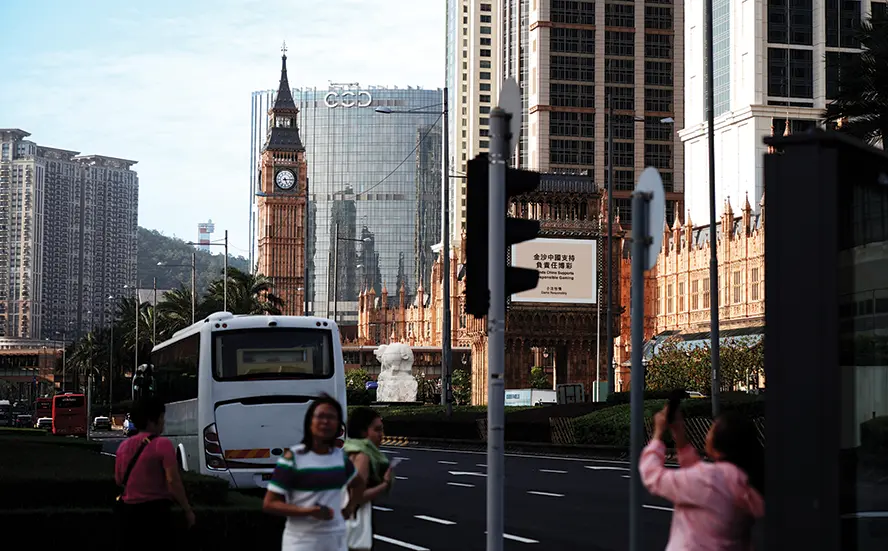 It’s an issue that lingers to this day, with Seaport’s Umansky commenting after SJM released its 1Q24 results that “The satellite business remains unprofitable due to the continued carrying of excess costs from shuttered casinos.”
It’s an issue that lingers to this day, with Seaport’s Umansky commenting after SJM released its 1Q24 results that “The satellite business remains unprofitable due to the continued carrying of excess costs from shuttered casinos.”
But SJM, like its peers, has seen performance improve with each and every quarter, sparking industry-wide reinvestment back into Macau’s increasingly busy gaming floors.
In their respective Q1 results announcements in May, leading slot machine suppliers Aristocrat and Light & Wonder referenced strong growth in Asia, with Light & Wonder pointing to replacement sales in Macau as being behind a 68% year-on-year increase in international replacement units. Aristocrat booked a 7% increase in revenue from jurisdictions outside North America and ANZ (Australia and New Zealand) “driven by strong game performance and a recovery in the sale of replacement units in Asia,” it said.
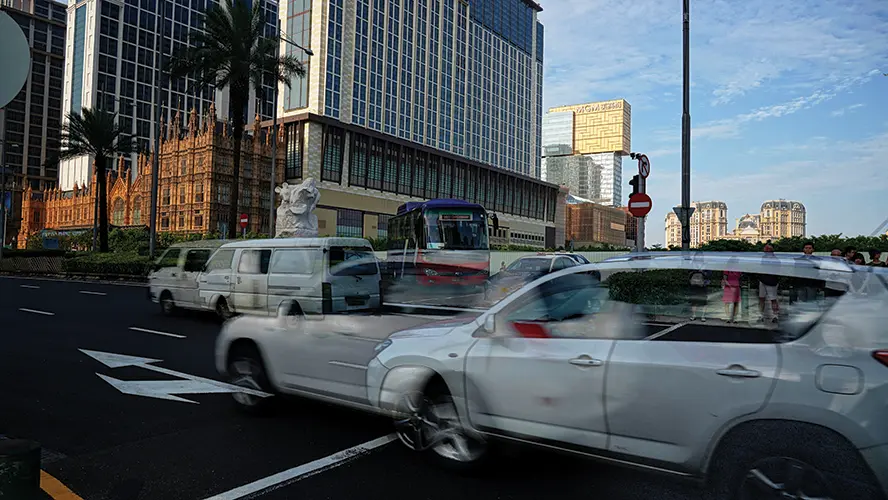 Suppliers have told IAG that the willingness of Macau’s operators to resume spending post-COVID came much faster than any of them anticipated.
Suppliers have told IAG that the willingness of Macau’s operators to resume spending post-COVID came much faster than any of them anticipated.
That’s even more apparent in table games, where smart gaming table technology utilizing RFID and Artificial Intelligence is the flavor of the day. The technology is not entirely new – MGM China rolled it out at MGM Cotai in 2018 and Sands China began experimenting the following year – however all six concessionaires have now confirmed that they are either running the technology already or planning to do so before year’s end.
That’s quite the commitment, too. At around US$27 per table, per day, a company the size of Galaxy running close to 900 baccarat tables is looking at almost US$9 million per year, excluding set-up costs. Naturally, the expectation is that the technology will pay for itself and more, due to its ability to detect dealer error and chip theft and to significantly enhance game speed.
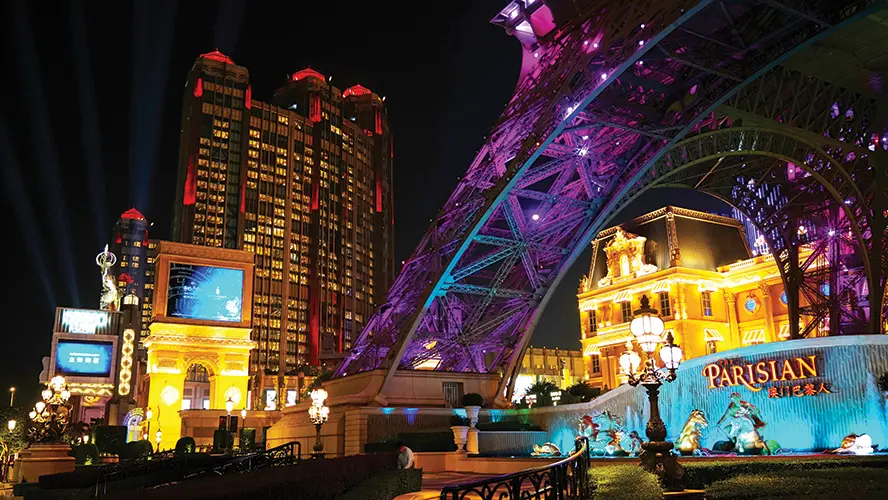 The great irony of post-COVID Macau – or perhaps the great inevitability – is that it is more competitive now than ever before, with concessionaires increasingly combative in their pursuit of the premium mass customer and not afraid to flaunt it. There has even been a rare war of words between at least two concessionaires, with MGM Resorts CEO and President Bill Hornbuckle recently defending the company against criticism of its aggressive promotional activities and calling out two more market rivals – Sands and Galaxy – by claiming MGM would be performing even better if it had their retail scope to fall back on.
The great irony of post-COVID Macau – or perhaps the great inevitability – is that it is more competitive now than ever before, with concessionaires increasingly combative in their pursuit of the premium mass customer and not afraid to flaunt it. There has even been a rare war of words between at least two concessionaires, with MGM Resorts CEO and President Bill Hornbuckle recently defending the company against criticism of its aggressive promotional activities and calling out two more market rivals – Sands and Galaxy – by claiming MGM would be performing even better if it had their retail scope to fall back on.
This was in response to comments from Melco Resorts & Entertainment’s executive team who described MGM’s activity as “crazy behavior” and “irrational” – criticisms Hornbuckle dismissed by pointing to MGM China’s strong 29% margins in the March quarter.
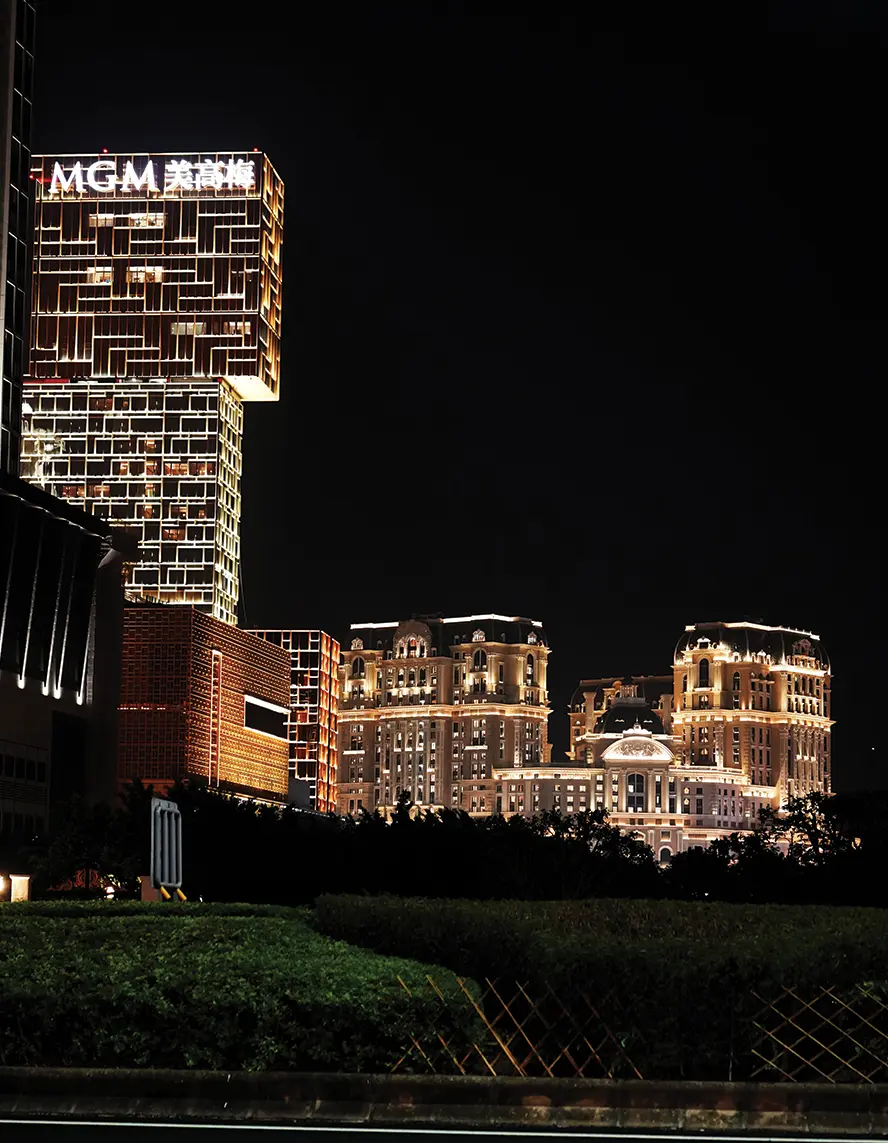 But banter aside, the outlook for all concessionaires remains decidedly strong.
But banter aside, the outlook for all concessionaires remains decidedly strong.
“The new post-Covid Macau is a stronger, less risky and likely less volatile industry than seen in the pre-2020 era,” said Seaport’s Umansky in April, referencing the virtual elimination of junkets and focus on mass, premium mass and non-gaming customer segmentation.
“While nearer-term uncertainty stems largely from China’s economic softness and geopolitical concerns, the economic softness in China has not been a negative drag on Macau recovery, and the geopolitical concerns are overemphasized.
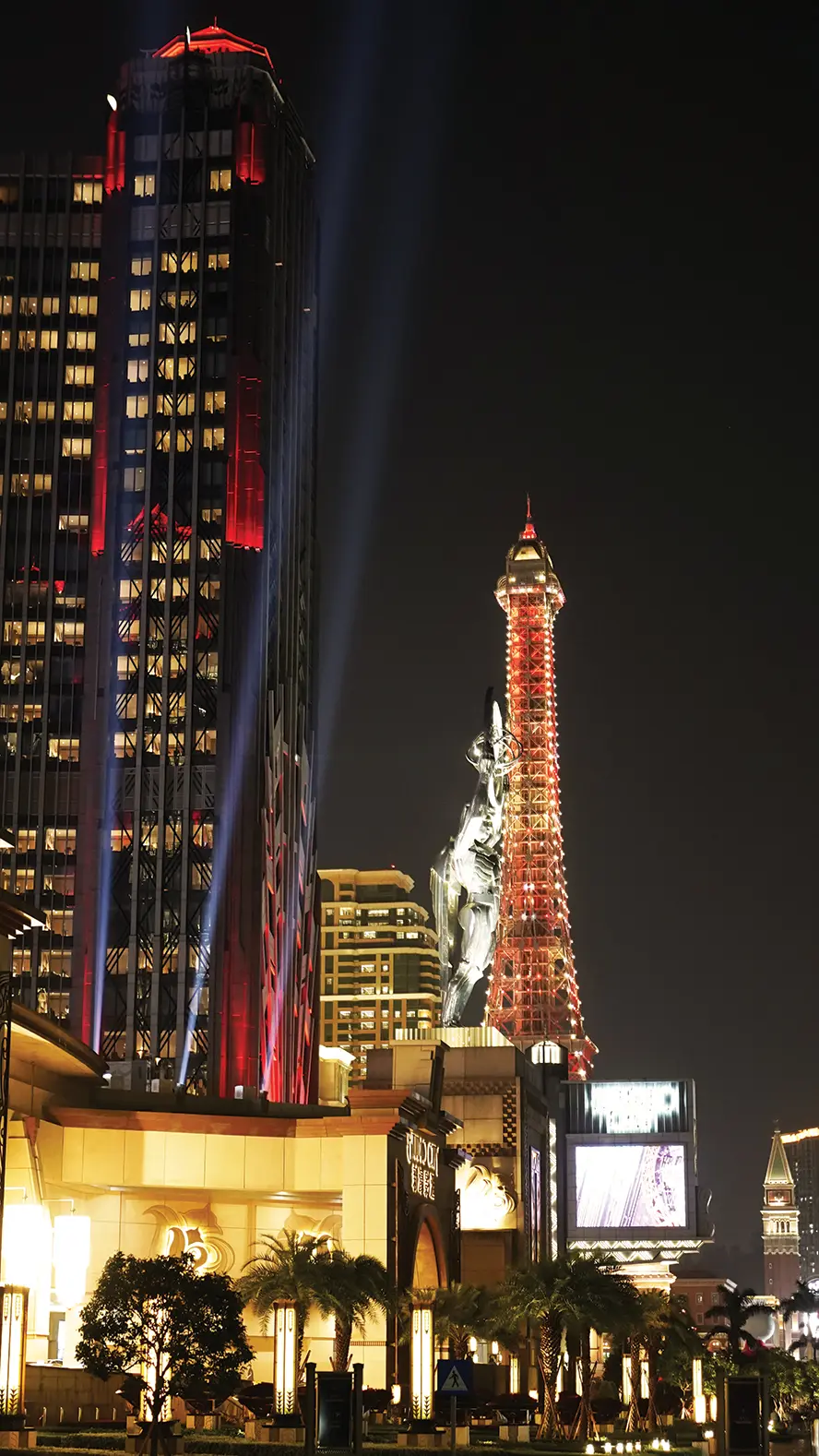 “Our long-term view on Macau is somewhat constrained by capacity limitations if the government does not allow for greater development (in particular of hotel rooms); however, under such a scenario, the industry’s pricing power would be further strengthened.
“Our long-term view on Macau is somewhat constrained by capacity limitations if the government does not allow for greater development (in particular of hotel rooms); however, under such a scenario, the industry’s pricing power would be further strengthened.
“‘Build it, and they will come’ is a long-term viable label to put on Macau. With strong premium consumer growth in China forecasted over the long-run, Macau’s long-term growth story is intact.”
























